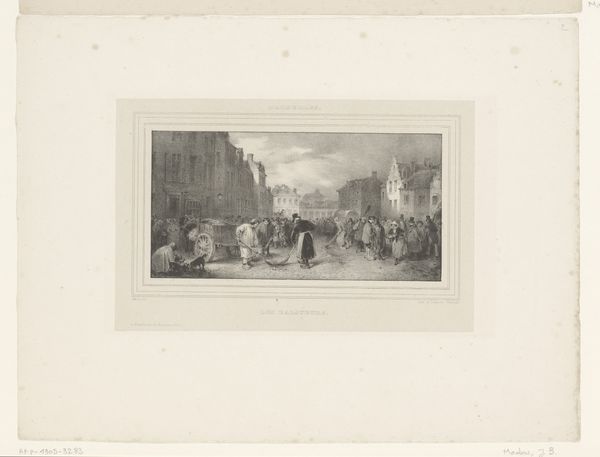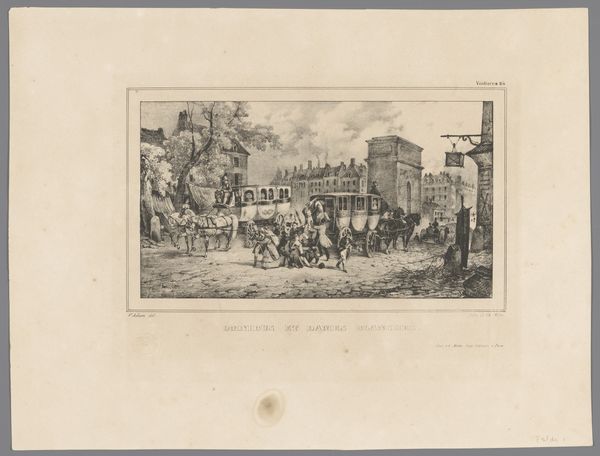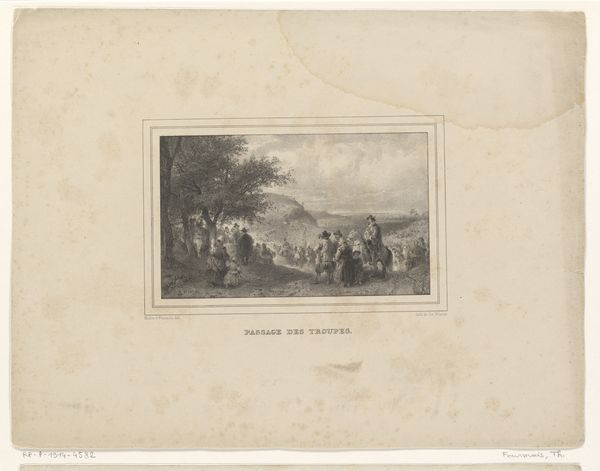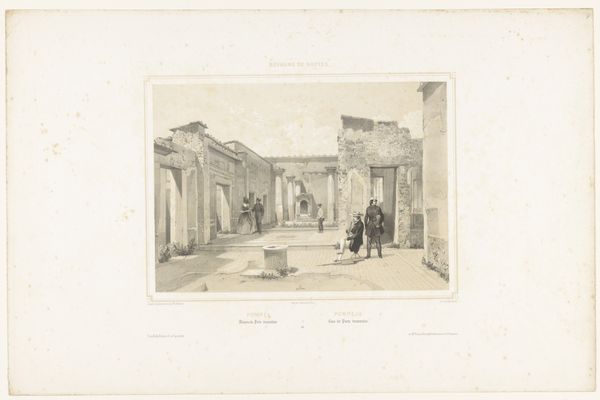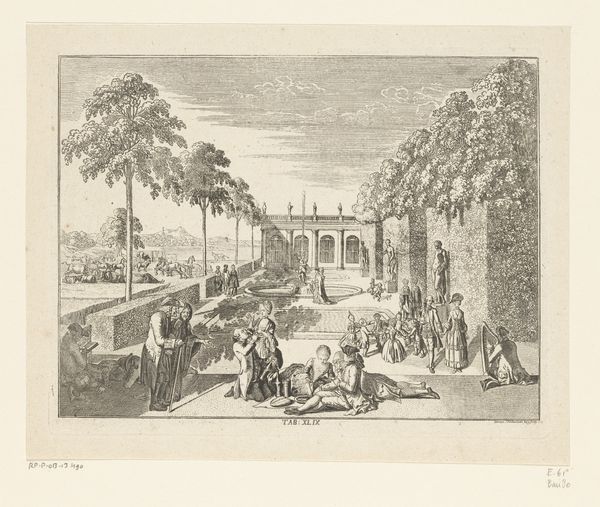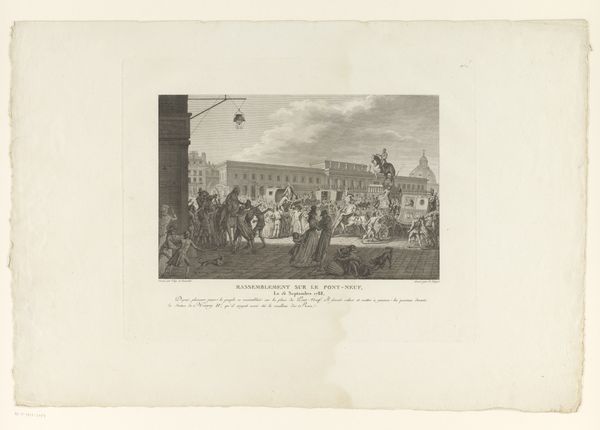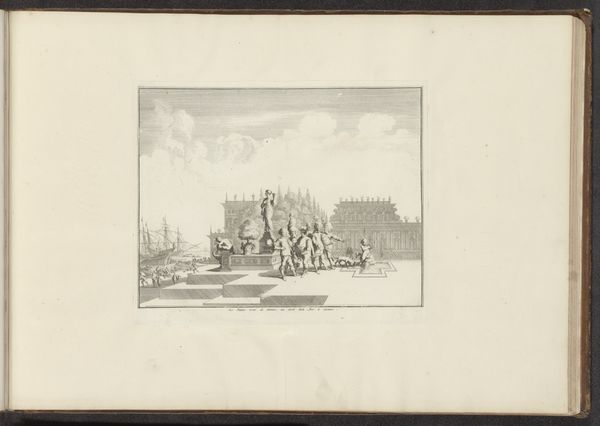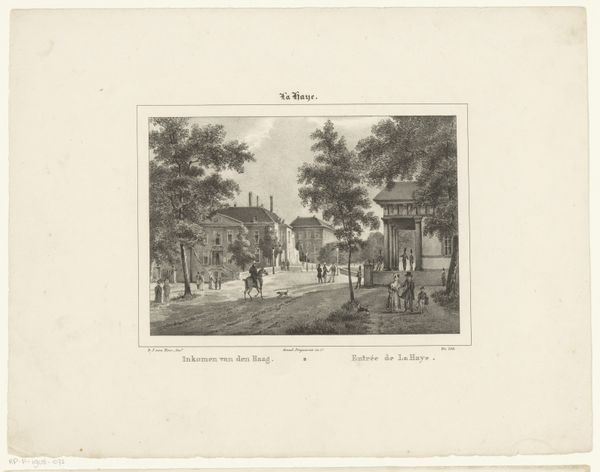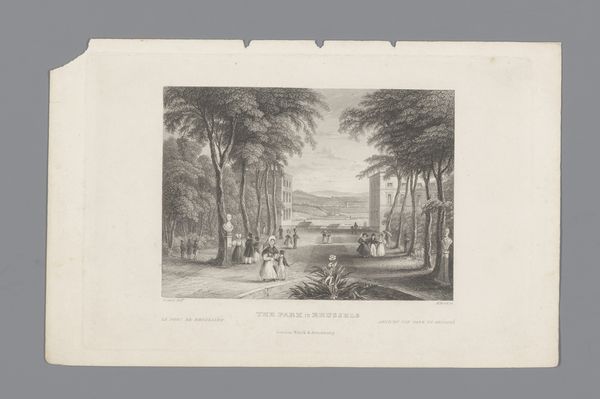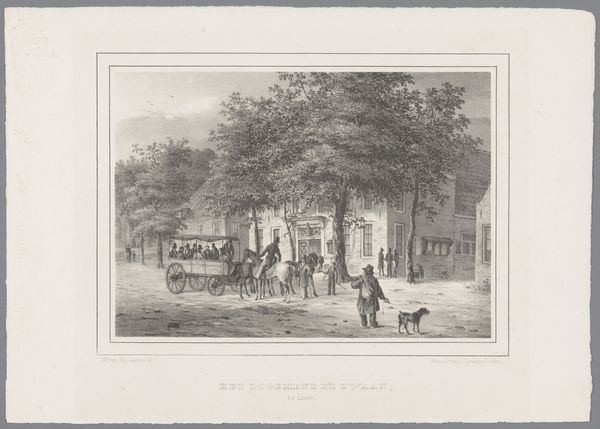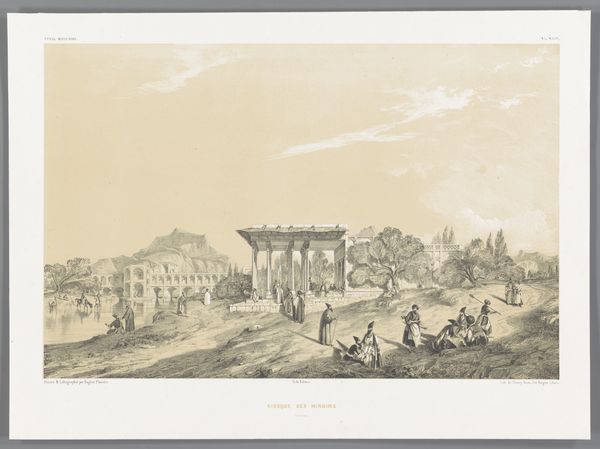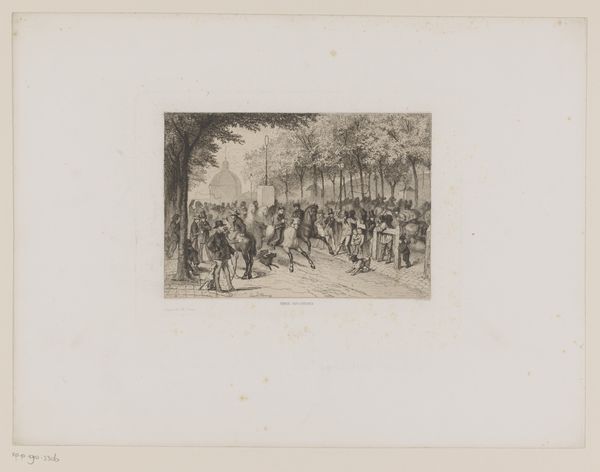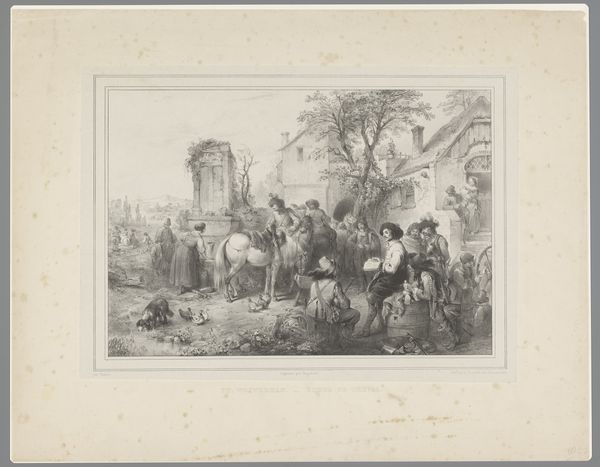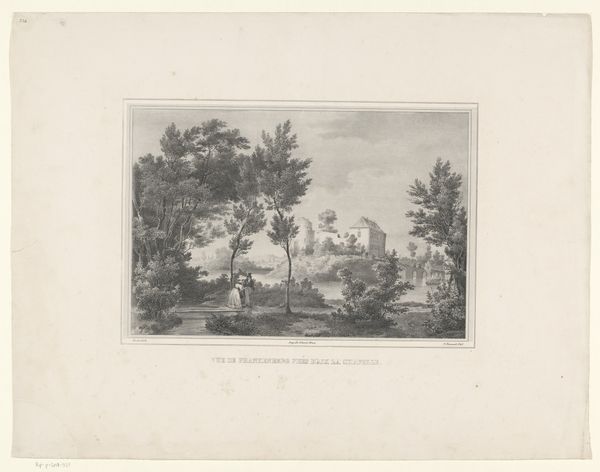
print, engraving
#
garden
# print
#
landscape
#
genre-painting
#
engraving
Dimensions: height 287 mm, width 370 mm
Copyright: Rijks Museum: Open Domain
This print, "Eighteenth-Century Garden" was created by Charles Rochussen in the nineteenth century using lithography, a process that democratized image-making, allowing for relatively quick and inexpensive reproduction. Lithography depends on the simple fact that oil and water don't mix. The artist would have drawn the design on a flat stone with a greasy crayon, then treated the stone so that ink would adhere only to the drawn areas. The resulting prints, like this one, could then be colored by hand or, later, by machine. The availability of this printmaking technique allowed Rochussen to capture a leisure scene of the upper class strolling through an immaculate garden. The lithographic process, a child of industrialization, here captures a moment of pre-industrial, aristocratic leisure. Rochussen's choice of lithography highlights the shifting social landscape, where new technologies enabled broader access to art, even art depicting exclusive social circles.
Comments
No comments
Be the first to comment and join the conversation on the ultimate creative platform.
